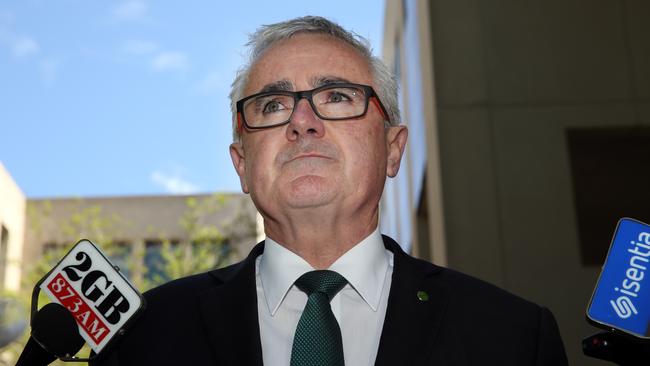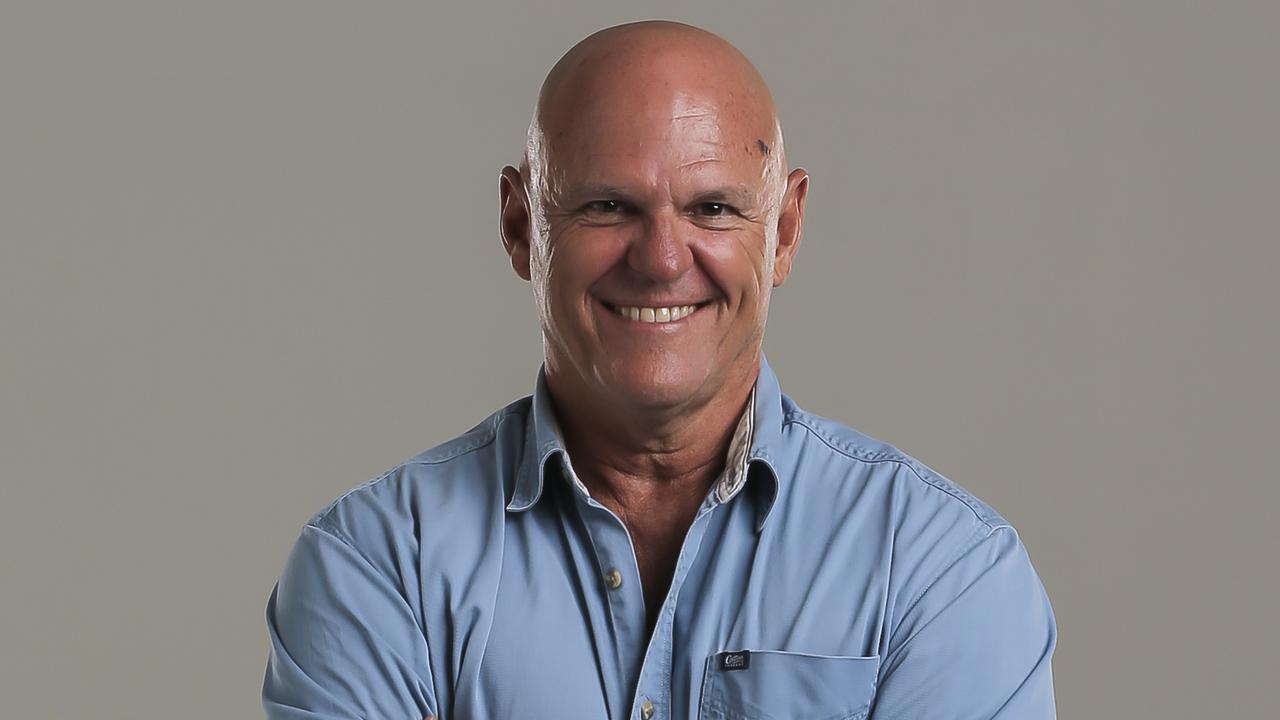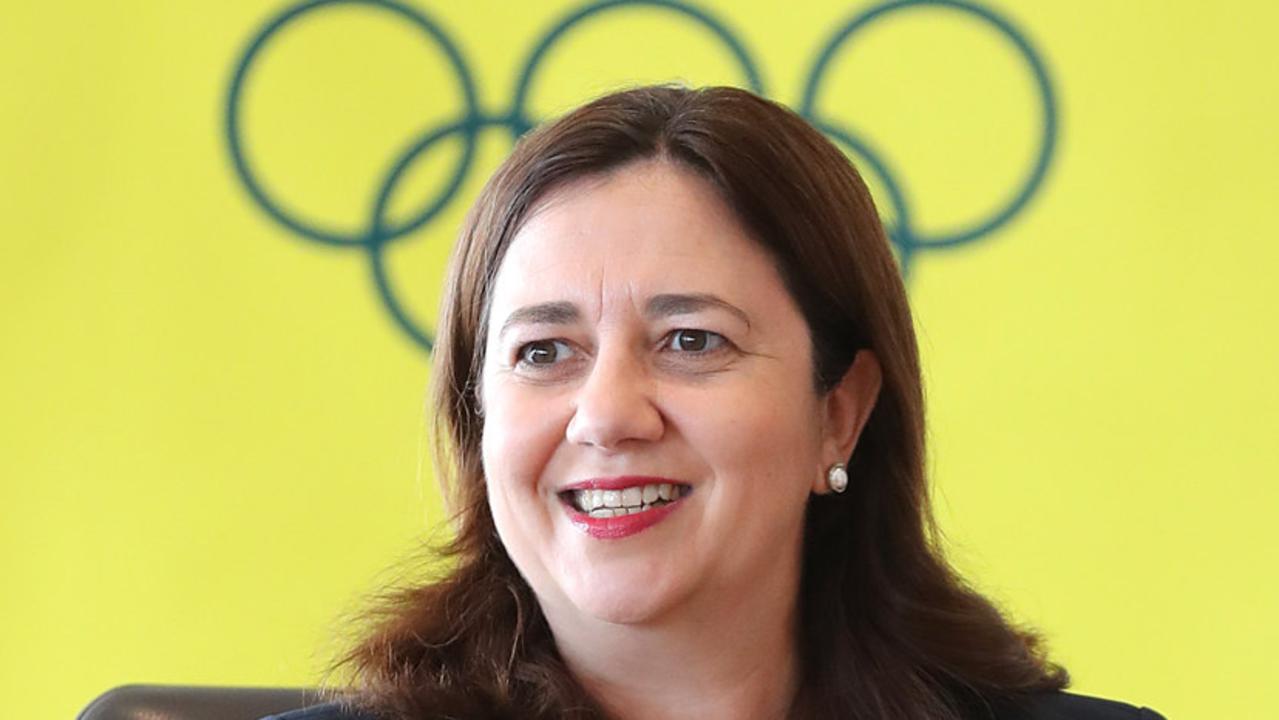Opinion: State governments crave pokie revenue like an addict gambler needs a fix
IT shouldn’t surprise us that state governments, often described as the biggest pokie addicts, won’t even consider pokie bans.
Opinion
Don't miss out on the headlines from Opinion. Followed categories will be added to My News.
I ENJOYED morning tea with my family at a large Brisbane sports club on Sunday.
As I wandered around to check the facilities I found myself in a maze of machines bathed in the warm, alluring light of a gambler’s paradise.
It was 10.30am but there were already dozens of punters – many with grog in hand – ploughing notes into machines like paper towels into a shredder.
I could only think of Tasmanian Independent MP Andrew Wilkie’s bombshell allegations against a major casino last Wednesday.
Wilkie’s accusation that the casino had illegally tampered with machines could well be the turning point anti-pokie activists have been waiting for.
Australian Federal Police are “evaluating” the claims as Wilkie marshals support for an inquiry, with the backing of Nick Xenophon, as well as the Greens and Jacqui Lambie.
Sadly, the major parties have handballed the issue, insisting pokie regulation is up to state governments. How convenient.
While that may be true on constitutional paper, there are examples of state and federal cooperation when Australians’ national welfare is at risk. Gun control, school and hospital funding, and the battle against ice addiction are just a few.
Indeed, the parallels between drug and gambling addiction are clear, and it’s morally reprehensible for any political party to wash its hands of any scourge that’s destroying families.
Shockingly, Australia’s 200,000 poker machines means we have more one-armed bandits per capita than any country in the world. That’s one for every 114 people.
Australians put about $130 billion into pokies each year, and lose $11 billion overall. That equates to more than $2000 per player – the highest rate in the world, and 10 times what Americans lose.
And Queensland’s up there with the worst. In July this year alone, Queenslanders notched up a new record in losing more than $215 million – or almost $5000 each minute – on pokies. That’s an annual loss of $2.25 billion.
Cruelly, we know the burden of those losses is not shared equally. Economically disadvantaged areas are hit hardest. Brisbane punters lose about $60,000 per machine per year while Logan players lose about $80,000. So the pokie industry is propped up by those least able to afford it.

Worse still, most profits come from those least able to control their behaviour, with 60 per cent of all pokie losses borne by “problem gamblers”.
On high-intensity machines with fast-turning games and high-stake bets, it’s possible to lose $1500 per hour.
It’s sickening to think what an addict, possibly numbed by drink, can do to a household budget – not to mention a mortgage, marriage and kids – in just a few zombied hours.
But it shouldn’t surprise us that state governments, often described as the biggest pokie addicts, won’t consider bans.
With Queensland alone raking in $687 million in gambling taxes in 2016-17, and up to $718 million next year, the states need pokie revenue like a junkie needs a fix.
The State Government says it takes gambling addiction “seriously”, and that’s why there are caps on pokie numbers. But the state also spends just $5.5 million on problem gambler treatment – or less than 1 per cent of its pokie tax revenue.
And yet I already hear the protests of the powerful pokie lobby – the same force that’s killed off previous attempts to mandate player pre-commitments and maximum dollar bets. “Say no to the nanny state,” they say. “Real Aussies love a bet, so let them make their own decisions.”
It’s as predictable as it is false. Poker machines affect the brain’s dopamine-making abilities differently from any other gambling form. The bright lights and exciting sounds “reward” punters, while near-misses convince players the “big win” is just around the corner. Indeed, the changes in brain chemistry have been likened to cocaine addiction. That’s why addicted gamblers can’t make rational decisions over their behaviour.
It’s not only OK for governments to crack down on dangerous industries, it’s obligatory. The duty of any government is to protect its most vulnerable people – even from themselves.
Will the coming election prompt Queensland’s Labor and LNP parties to outline how they’ll address pokie addiction in the next term? Don’t bet on it.
Dr Paul Williams is a senior lecturer at Griffith University’s School of Humanities, Languages and Social Science


